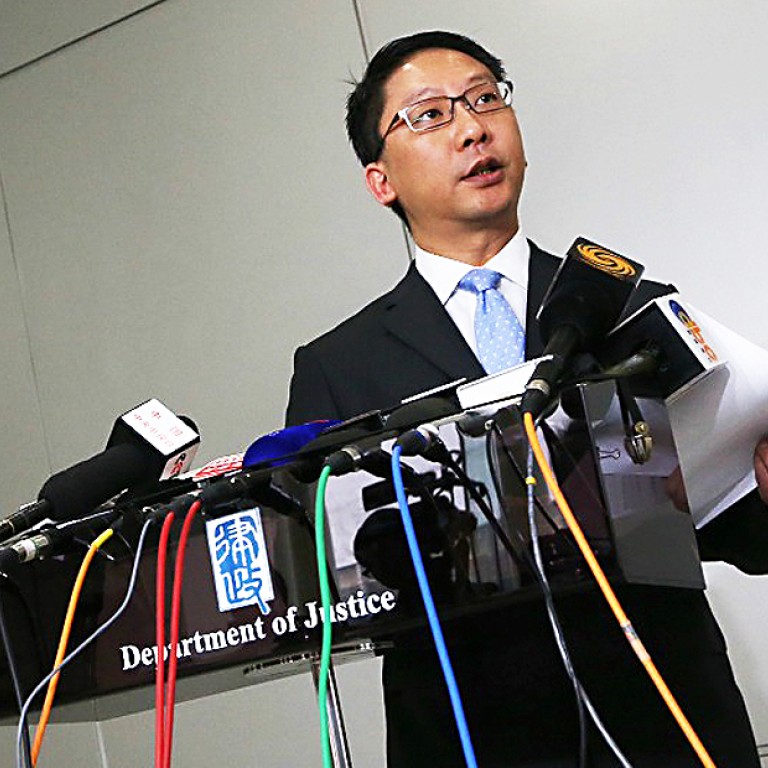
Hong Kong justice secretary Rimsky Yuen struggles to defend Beijing’s white paper
Rimsky Yuen says 'requirements' laid out by central government comparable to existing judicial oath, amid accusations city's judicial independence is under threat
Hong Kong's justice secretary insisted yesterday that Beijing's white paper on "one country, two systems" did not interfere with the city's judicial independence.
Nor did it, said the secretary, Rimsky Yuen Kwok-keung, "add any extra requirements which are not found in the Basic Law".
But amid accusations from the legal profession that Beijing was putting pressure on city's judiciary, Yuen struggled to clarify whether judges should consider national security, strategic interests and the white paper itself when deciding cases.
The paper, released on Tuesday, emphasised Beijing's control over Hong Kong. It categorised judges as Hong Kong administrators just like the chief executive and top officials.
That was a mistake, according to the Bar Association's strongly worded response to the paper, released Wednesday.
The State Council-issued paper says administrators, including judges, have a "basic political requirement" to love the country.
Yuen said that was tantamount to the allegiance to Hong Kong that judges already swear as part of their judicial oath.
"I don't want to play around with words nor … be pedantic," Yuen said. But "when judges take their oath when assuming office, it is already a legal manifestation of the 'love the country, love Hong Kong' concept".
The white paper "doesn't add extra requirements which are not found in the Basic Law … nor does it change any article in the Basic Law," the secretary said.

Kwok later endorsed the Bar's view in a statement jointly issued with 29 other representatives in the Election Committee's legal section.
Yuen did not address Kwok's question, instead focusing his answer on Hong Kong.
"Everyone would agree that when a judge is discharging his judicial function, one would suppose the judge to be acting in the interest of Hong Kong as a whole," the minister said. "Judicial independence means deciding cases free from interference from any individual or the executive branch."
But he sidestepped the question of whether the white paper should be a reference for judges when making judgments.
"When judges decide on cases, they make reference to the evidence, the law and other literature," he said.
Lawyers could choose whether to include the white paper in their submissions and judges could consider whether the submission was relevant.
On Wednesday, the Bar cited remarks it made in 2008 when it was chaired by Yuen himself: "The judiciary … is not, and should not be regarded as, part of the governance team."
Dismissing suggestions that he was contradicting himself, Yuen said he still stood by that view because the word "administrators" in Beijing's paper referred to members of the city's political structure while the "governance team" in his statement only meant the executive branch.
Speaking in Beijing, Basic Law Committee member Maria Tam Wai-chu endorsed Yuen's view: "Although the judiciary is part of the political structure … judicial officers shall exercise judicial power independently."
Chief Secretary Carrie Lam Cheng Yuet-ngor also weighed in to defend the white paper.
"There is absolutely no truth in saying that the white paper has undermined Hong Kong's autonomy," she said. "The white paper described … 'one country, two systems' clearly, comprehensively and accurately."

